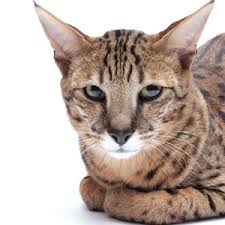Changes To Expect In A Senior Cats Behavior
 As your cat ages, you can expect changes in his/her behavior. Sometimes we don’t realize that these changes are occurring but sometimes they can get us a bit concerned. Pet MD has put together a list of changes you may notice as your cat ages.
As your cat ages, you can expect changes in his/her behavior. Sometimes we don’t realize that these changes are occurring but sometimes they can get us a bit concerned. Pet MD has put together a list of changes you may notice as your cat ages.
1. More Talkative
Excessive vocalizing as she ages doesn’t mean she’s becoming more conversational, but it could indicate that she’s disoriented due to feline cognitive decline (FCD). It could also be that she’s becoming deaf or is in pain, perhaps from arthritis. Have her thoroughly examined to rule out any medical conditions. If there’s no physical cause, your veterinarian can try to resolve it with pheromones if her meowing stems from anxiety brought on by age.
2. Restlessness or Waking at Night
Your aging cat could be experiencing hearing or vision loss, which can impact how deeply she sleeps. Or she may need to use her litter box more frequently but have trouble finding it due to feline cognitive decline (FCD). Geriatric anxiety could also be the culprit, caused by being separated from you because you’re asleep or being worried about finding her way around the house. Medication may possibly help with this.
3. Disorientation and Confusion
An aging cat’s mental decline can resemble a human’s Alzheimer’s disease, where the once familiar becomes confusing or forgotten. Predictability in your cat’s schedule and environment can help ease her stress. Keep the location of her litter box and food in the same places as always, and avoid any changes to what she eats or the litter she uses. If her distress is at a fever pitch, keep her in a room with food and litter box at opposite ends. Having both in the same small space can increase her feeling of security.
4. Using the House as a Litter Box
If she has taken her elimination habits outside of the box, so to speak, she is not being willfully disobedient. Inappropriate elimination has many causes, such as a decrease in mobility, a more frequent urge to eliminate, less control over her bowels or bladder, and serious organ issues, urine tract infection, kidney disease, or even brain tumors. Take her to the vet to rule out any medical issue and, if that’s not the cause, increase the number of litter boxes. You may need to get a litterbox with lower sides than her current box so that she can comfortably enter and exit.
5. Becoming Emotionally Distant or Especially Needy
This sign is fairly easy to spot, since a formerly friendly cat becoming less interested in you and your petting is a stark contrast to her “normal” behavior. Conversely, a previously aloof cat can become clingy and overly dependent — such as following you around the house or meowing plaintively and constantly — and may feel the need for constant physical contact. Try to think of this change as getting to experience the flip side of your cat’s personality.
6. Apathy with a Decrease in Activity
Apathy with a drop in her usual activity can also mean illness, so check her eyes to see if her third eyelid (haw) is showing. If she passes this test and is not significantly different, such as not grooming herself at all or being less responsive to activity in her environment, chances are that she’s just slowing down with age. At any time that your cat refuses to eat, get her to the vet immediately. Not eating can cause fatty liver disease, which is both quick and fatal.
7. Crankiness and Irritability
When your cat reacts to being disturbed with irritation and crankiness, she could be feeling the physical effects of aging — stiffness, soreness (maybe from arthritis), muscular weakness, or diminished smell or hearing. She also could be feeling some confusion and sadness about her restricted activity and diminished ability to be part of family life. Find ways to include her, even if that means just holding her on your lap as she watches Junior’s antics, and take care to leave her alone when she’s settled in comfortably.
8.. Pacing … pacing … and pacing
An older cat that continuously paces during her waking hours is showing one of the classic signs of feline cognitive decline (FCD), a condition that mimics dementia in humans. Though it can be unnerving to see your cat constantly walking back and forth, it can also be a bonding experience for the two of you. Try walking along with her and carrying on a conversation, even if it’s one-sided; surprise her with treats along her path; or drag a shoelace in front of her if she seems playful. Consult your veterinarian for possible options for your cat.
Thank you once again to Pet MD for providing this valuable information.
Remember, your pets count!
The greatest variety of oldies —familiar favorites and some surprises on two great radio stations!
Edgewater Gold Radio – The 50’s 60’s 70’s early 80’s plus great standards.
Rehoboth Radio -Beachradio 5060 – the greatest variety of the 50’s and 60’s.